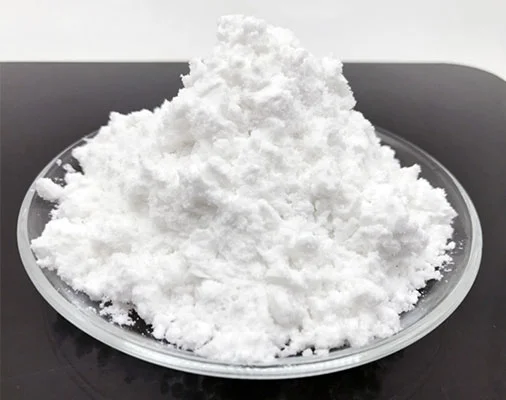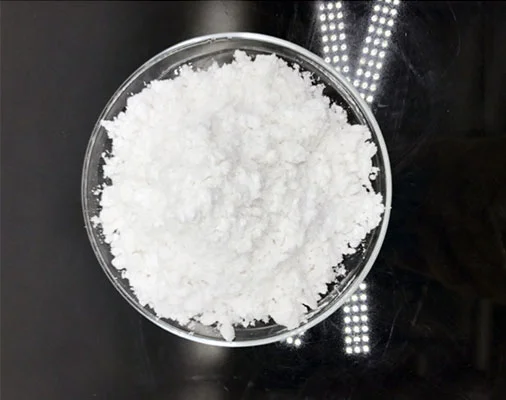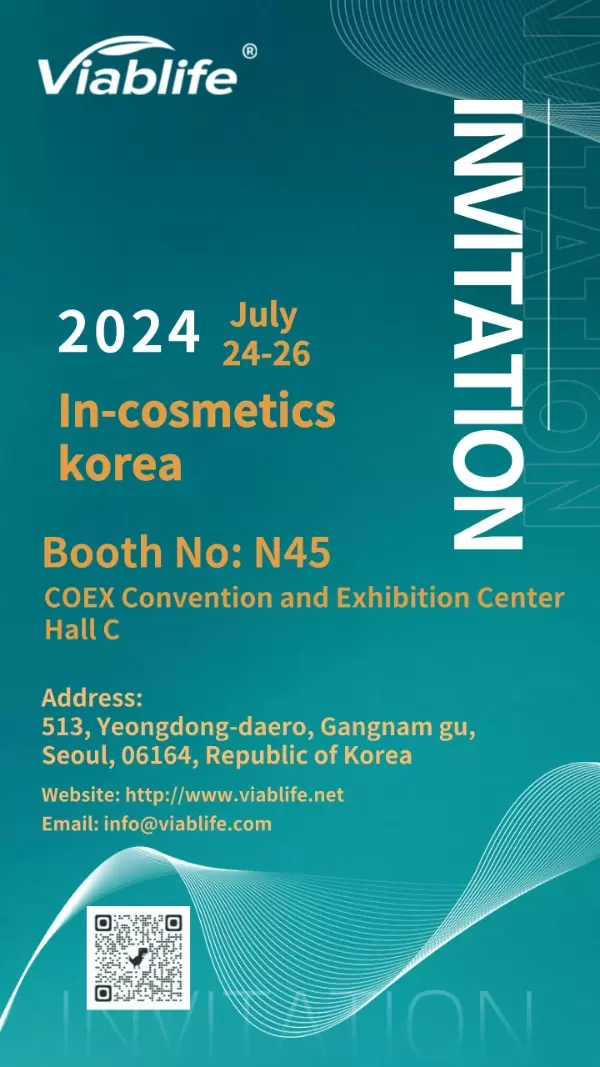Exposure to ultraviolet (UV) radiation is one of the most significant environmental risk factors for skin damage, leading to acute conditions such as sunburn and chronic issues like photoaging and skin cancer. A primary consequence of UV exposure is inflammation, an immune response aimed at protecting tissues but which can also cause tissue damage if uncontrolled. Nicotinamide (NAM), a form of vitamin B3, has gained attention for its ability to reduce UV-induced inflammation when applied topically or taken orally. In this blog, as a supplier of high-quality niacinamide powder for sale, Viablife will share how niacinamide can reduce UV-induced inflammation.
UV Radiation and Skin Damage
UV radiation, primarily UVA (320–400 nm) and UVB (290–320 nm) rays, penetrate the skin and cause direct and indirect damage to DNA, proteins, and lipids. UVB rays, in particular, can induce DNA damage by forming cyclobutane pyrimidine dimers (CPDs) and 6-4 photoproducts, which distort DNA structure and lead to mutagenesis if not repaired. UVA rays, while less energetic, penetrate deeper into the skin, generating reactive oxygen species (ROS) that damage cellular components through oxidative stress.
The skin's innate immune response to UV-induced damage often leads to inflammation, characterized by the release of pro-inflammatory cytokines, recruitment of immune cells, and increased vascular permeability. These processes contribute to the redness, swelling, and pain commonly associated with sunburn. In chronic UV exposure, this inflammatory response can drive skin aging and increase the risk of skin cancer by promoting DNA mutations and suppressing immune surveillance.
Nicotinamide's Role in Cellular Metabolism
Nicotinamide is the amide form of niacin (vitamin B3), and it serves as a precursor for nicotinamide adenine dinucleotide (NAD+), a coenzyme crucial for cellular energy production and DNA repair. NAD+ participates in redox reactions in mitochondria, supporting ATP production through oxidative phosphorylation. It also serves as a substrate for several enzymes involved in maintaining cellular homeostasis, including poly(ADP-ribose) polymerases (PARPs) and sirtuins.
NAD+ levels are depleted by UV exposure, particularly through the activation of PARPs, which consume NAD+ to repair UV-induced DNA damage. This depletion reduces the cell's energy reserves, impairs DNA repair, and exacerbates the inflammatory response. Nicotinamide supplementation restores NAD+ levels, supporting both DNA repair and energy metabolism.

Mechanisms by Which Nicotinamide Reduces UV-Induced Inflammation
1. Restoration of NAD+ Levels
UV-induced DNA damage activates PARP enzymes, which use NAD+ as a substrate to add poly(ADP-ribose) chains to damaged DNA sites, facilitating the recruitment of DNA repair machinery. However, this process can rapidly deplete intracellular NAD+ stores, impairing both DNA repair and energy production.
Nicotinamide supplementation replenishes NAD+ pools, ensuring sufficient cofactor availability for both PARP activity and mitochondrial function. By enhancing DNA repair, nicotinamide reduces the persistence of UV-induced DNA lesions that would otherwise promote inflammation through the activation of damage-sensing pathways, such as the NF-κB (nuclear factor kappa-light-chain-enhancer of activated B cells) signaling cascade. This pathway is a key driver of the inflammatory response, promoting the expression of pro-inflammatory cytokines like interleukin-6 (IL-6) and tumor necrosis factor-alpha (TNF-α).
2. Inhibition of Pro-inflammatory Cytokine Production
Nicotinamide has been shown to modulate the immune response by inhibiting the production of pro-inflammatory cytokines that are upregulated in response to UV exposure. Several studies have demonstrated that nicotinamide reduces the expression of IL-1β, IL-6, and TNF-α, which are critical mediators of the acute inflammatory response.
This anti-inflammatory effect may be mediated, in part, by the inhibition of NF-κB activation. NF-κB is a transcription factor that regulates the expression of numerous inflammatory genes, and its activation is a common response to cellular stress, including UV-induced DNA damage and ROS production. By preventing the activation of NF-κB, nicotinamide can dampen the inflammatory response, reducing the recruitment of immune cells to the damaged area and limiting the extent of tissue damage.
3. Reduction of Reactive Oxygen Species (ROS)
UV exposure increases the production of ROS, which can damage cellular proteins, lipids, and DNA, further exacerbating inflammation. Nicotinamide has been shown to reduce ROS levels by enhancing the cell's antioxidant defenses, likely through its role in maintaining NADPH (nicotinamide adenine dinucleotide phosphate) levels. NADPH is essential for the regeneration of glutathione, one of the primary antioxidants in the skin.
Additionally, nicotinamide has been found to enhance the activity of superoxide dismutase (SOD) and catalase, enzymes that convert ROS into less harmful molecules, thereby mitigating oxidative stress. This reduction in ROS helps to prevent the activation of inflammation-triggering pathways, including those mediated by NF-κB and MAPK (mitogen-activated protein kinase) signaling.
4. Suppression of Skin Immune Suppression
Chronic UV exposure not only induces inflammation but also suppresses the skin's immune surveillance mechanisms, which are crucial for identifying and eliminating potentially malignant cells. This immune suppression is largely mediated by the induction of regulatory T cells and the inhibition of antigen-presenting cells, such as Langerhans cells.
Nicotinamide has been shown to restore immune function in UV-exposed skin, preventing the suppression of Langerhans cells and enhancing the skin's ability to mount an immune response against damaged or transformed cells. By preserving immune surveillance, nicotinamide reduces the risk of long-term inflammation-driven complications, such as skin cancer development.
5. Enhancement of Barrier Function
The skin barrier is the first line of defense against environmental insults, including UV radiation. UV-induced damage to the stratum corneum, the outermost layer of the skin, can impair its barrier function, leading to increased transepidermal water loss (TEWL) and the penetration of irritants, both of which can exacerbate inflammation.
Nicotinamide enhances the production of ceramides, free fatty acids, and cholesterol—key components of the skin's lipid barrier. This improvement in barrier function helps to protect against further irritation and inflammation following UV exposure, promoting faster recovery of the skin.

Conclusion
Nicotinamide powder plays a crucial role in reducing UV-induced inflammation through a combination of mechanisms, including the restoration of NAD+ levels, inhibition of pro-inflammatory cytokine production, reduction of oxidative stress, preservation of immune function, and enhancement of skin barrier integrity. By targeting both the immediate inflammatory response and the underlying causes of inflammation, nicotinamide offers a promising strategy for protecting the skin from the harmful effects of UV radiation, particularly in individuals with high sun exposure or increased risk of skin cancer.
High Quality Niacinamide Powder Manufacturer - Viablife
What truly sets Viablife's Nicotinamide apart is its control of Nicotinic acid to below 10 ppm, compared to the industry standard of 100 ppm—a distinction no one else has achieved. This significant advantage enhances Viablife's market offering. The "Biotransformation Method for Heterocyclic Conversion to Amide" minimizes the risk of vasodilation and redness caused by nicotinic acid, making Viablife's Nicotinamide an ideal choice for sensitive skin types.
Related Products:
1. L-Tyrosine
2. Nicotinamide
3. Ceramide





 Leave a Message
Leave a Message